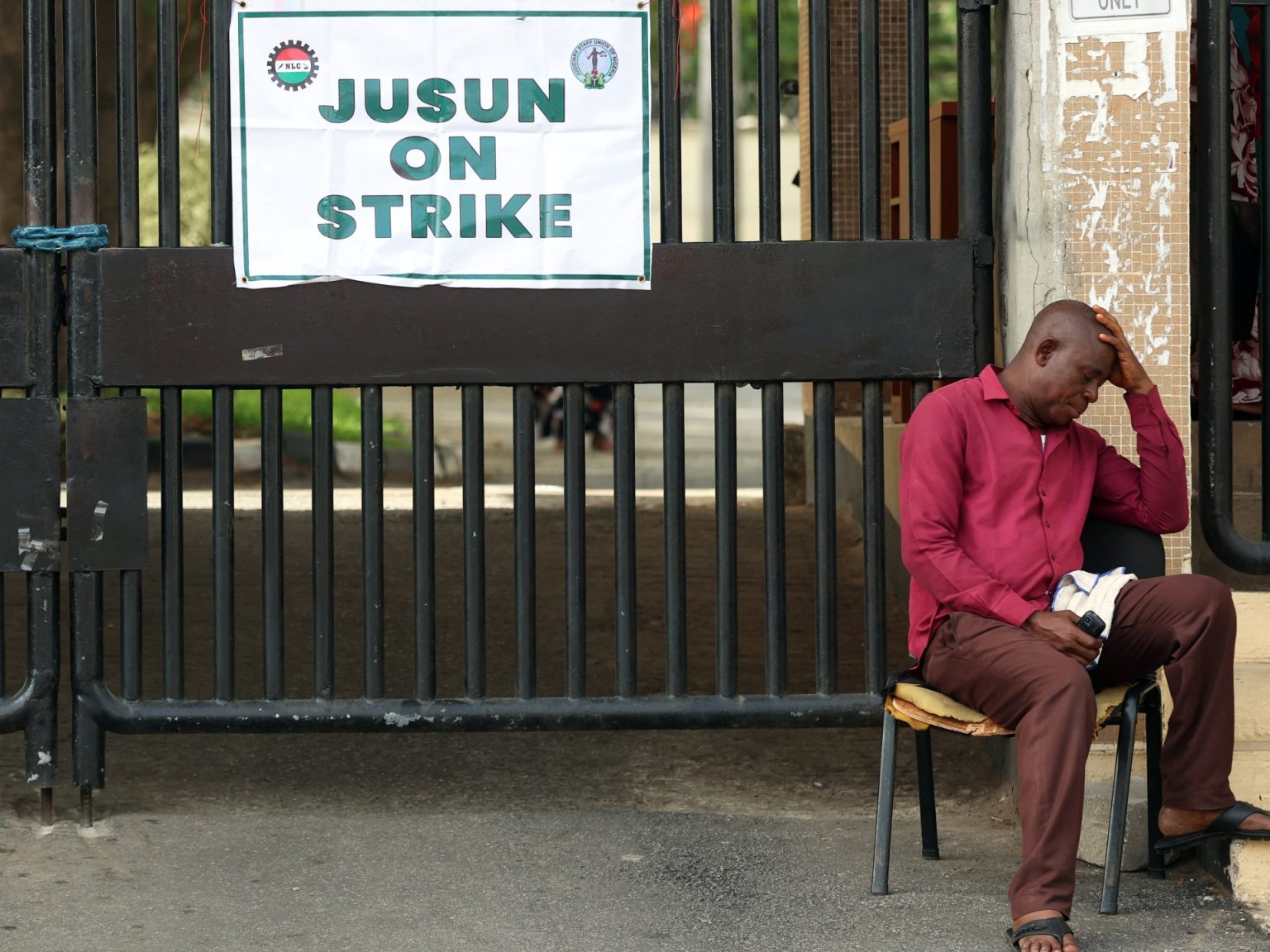Nigeria’s trade unions recently went on a nationwide strike to push the government for a minimum wage increase amidst a cost of living crisis. The strike disrupted power supply for the country’s 200 million people and led to flight cancellations. The talks between the government and the unions have not yielded results yet, and another strike deadline looms if an agreement is not reached.
The labour unions are demanding an increase in the minimum wage from 30,000 naira to nearly 500,000 naira, citing the impact of inflation on the cost of living for an average family of six. The government has offered 60,000 naira, which the unions have deemed unreasonable given the current economic situation. President Bola Ahmed Tinubu’s reforms have led to a spike in inflation, worsened by the devaluation of Nigeria’s currency.
Nigeria is facing a cost of living crisis due to poor governance, corruption, and import dependence. Prices of essential goods have tripled within the past year, leading to food insecurity and social unrest. President Tinubu’s monetary policies have exacerbated the situation, with the naira losing 60 percent of its value and inflation rates soaring. The government’s response to the unions’ demands has been met with resistance, citing economic instability and potential destabilization.
The government negotiators have committed to a minimum wage that is higher than 60,000 naira, but the exact amount is still unclear. There are concerns about the government’s ability to sustain a higher wage given the current economic challenges and inflationary pressures. The unions have set a one-week deadline for a resolution, threatening another strike if their demands are not met.
The speculations suggest that the unions may settle for a minimum wage of 100,000 naira, but this raises concerns about the impact on private companies and state governments struggling to pay current wages. Analysts suggest that instead of focusing on higher wages, the unions should pressure the government to address inflation and implement holistic economic reforms. The cycle of wage increases leading to inflation and the need for further adjustments creates a challenging dilemma for both the government and the unions.


